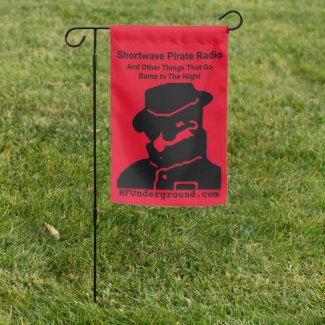On December 5, Glen Rubash, KC0GPV, of Dwight, Kansas, was issued a $10,000 fine for what the FCC called “willfully and repeatedly” violating Section 301 of the Communications Act of 1934, as amended by operating an unlicensed radio transmitter on the frequency 88.3 MHz in Manhattan, Kansas.
In response to a complaint, agents from the FCC’s Kansas City Office used direction finding techniques to locate the source of radio frequency transmissions on the frequency 88.3 MHz. According to a Notice of Apparent Liability for Forfeiture issued on December 6, agents found an FM transmitting antenna mounted on a pole next to a residence in Manhattan, Kansas on September 26, 2012. The agents determined that the signals on 88.3 MHz exceeded the limits for operation under Part 15 of the Commission’s rules and therefore required a license. Part 15 sets forth the conditions and technical requirements under which certain radio transmission devices may be used without a license; specifically, Section 15.239 provides that non-licensed broadcasting in the 88-108 MHz band is permitted only if the field strength of the transmission does not exceed 250 μV/m at 3 meters. The FCC noted that its records showed that no authorization was issued to Rubash, or to anyone else for operation of an FM broadcast station at or near this location.
The next day, agents from the Kansas City Office again used direction finding techniques to confirm if the station was still operating on 88.3 MHz from the same location, and found that it was. The agents, accompanied by the property owner, inspected the unlicensed station’s antenna and transmitter located in a locked detached garage. “The property owner stated that he allowed Rubash to use the garage to operate the radio station and that he thought the operation was legal because Rubash told him that he was a licensed radio operator,” the forfeiture order stated. “Later that same day, Rubash spoke to an agent from the Kansas City Office via telephone and confirmed that he was an Extra class amateur licensee (assigned call sign KC0GPV). Rubash also admitted that he purchased the radio transmitter and that the station had been on the air for two months. Rubash added that he would not voluntarily relinquish the transmitter if asked to do so.” The FCC stated that this response demonstrated that Rubash had control over the station.
Section 503(b) of the Communications Act provides that any person “who willfully or repeatedly fails to comply substantially with the terms and conditions of any license, or willfully or repeatedly fails to comply with any of the provisions of the Act or of any rule, regulation, or order issued by the Commission thereunder” shall be liable for a forfeiture penalty. Section 312(f)(1) of the Communications Act defines “willful” as the “conscious and deliberate commission or omission of [any] act, irrespective of any intent to violate” the law.” According to the FCC, the term “repeated” means the commission or omission of such act more than once or for more than one day.
In addition, Section 301 of the Communications Act states that “no person shall use or operate any apparatus for the transmission of energy or communications or signals by radio within the United States, except under and in accordance with the Act and with a license granted under the provisions of the Act.” For the purposes of Section 301, the FCC noted that the word “operate” has been interpreted to mean both the technical operation of the station, as well as “the general conduct or management of a station as a whole, as distinct from the specific technical work involved in the actual transmission of signals.” In other words, the use of the word “operate” in Section 301 captures not just the “actual, mechanical manipulation of radio apparatus,” but also operation of a radio station generally. To determine whether an individual is involved in the general conduct or management of the station, the FCC noted that it can consider whether such individual exercises control over the station, which it has defined to include “...any means of actual working control over the operation of the [station] in whatever manner exercised.”
The FCC found sufficient evidence to establish that Rubash violated Section 301 of the Communications Act. Additionally, “because Rubash is a licensed Extra class amateur operator, he presumably was aware (or should have been aware) that operation of the radio transmitter required a license. The foregoing facts indicate that Rubash consciously operated and/or otherwise was involved in the general conduct or management of the unauthorized station.”
Pursuant to the Commission’s Forfeiture Policy Statement and Section 1.80 of the rules, the FCC found that the base forfeiture amount for operation without an instrument of authorization is $10,000. In assessing the monetary forfeiture amount, the FCC noted that it must also take into account the statutory factors set forth in Section 503(b)(2)(E) of the Communications Act, “which include the nature, circumstances, extent, and gravity of the violations, and with respect to the violator, the degree of culpability, any history of prior offenses, ability to pay, and other such matters as justice may require.” Rubash has until January 4, 2013 to pay the $10,000 fine or file a written statement seeking reduction or cancellation of the proposed forfeiture.
__._,_.___



